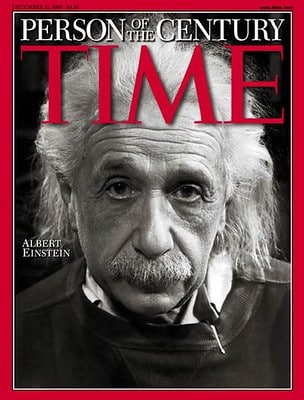Artificial intelligence, or AI, transforms how humans interact, think, and execute ideas.
Artificial intelligence is a set of algorithms that tell computers what to do.
AI is a boon for strategic introverts in providing a competitive edge for data accumulation, analysis, and dissemination.
Mike Evans, the founder of GrubHub, an online prepared food ordering and delivery platform, said in his book Hangry that although GrubHub processes millions of orders in data, data isn’t information.
Turning data into information requires asking the right questions.
And to retrieve the correct data, it’s best to measure what people do, not what they say.
GrubHub uses artificial intelligence to quantify the buying behavior of its customers.
Creating research laboratories with artificial intelligence allows strategic introverts to have a reliable partner without the inefficiency and wastefulness often created by humans.
The growth of Chat GPT allows introverts to do things alone that they once needed a team to do.
Chat GPT is an advanced language model that utilizes artificial intelligence to assist individuals in gaining a competitive edge in various fields.
As an AI-powered chatbot, Chat GPT is particularly beneficial for strategic introverts struggling with networking and communication in traditional settings.
By leveraging the power of AI, Chat GPT can help users improve their communication skills, gain new insights, and develop innovative solutions to complex problems.
Chat GPT is a valuable tool for introverted individuals looking to excel professionally or personally.
This brave new world allows strategic introverts to have consistent companions that will work at the level of their ambitions.
This utopia is not some weird way for introverts to avoid human contact.
No. It’s the evolution of intellectualism where reason and thoughtfulness can take a front seat in producing life-changing solutions.
Instead of the apocalyptic, doomsday predictions of artificial intelligence taking over the world, where computer intelligence has superseded human aptitude, a more sensible forecast is offered called collaborative intelligence.
In this vein, strategic introverts can use artificial intelligence to supplement their creativity.
Today, many experts disavow the singleness of working alone, contrary to the preference of eminent theoretical physicist Albert Einstein.
Einstein said, “The monotony and solitude of a quiet life stimulate the creative mind.”
This collaborative intelligence is a two-fisted approach to critical analysis and problem-solving.
Accenture researchers H. James Wilson and Paul Daugherty said:
To take full advantage of this collaboration, companies must understand how humans can most effectively augment machines, how machines can enhance what humans do best, and how to redesign business processes to support the partnership.
Currently, smartphones, online editing programs, and social media platforms allow strategic introverts to create one-person ventures where legions of individuals were required in the past to develop and distribute ideas.
Indeed, strategic introverts can still collaborate with like-minded colleagues who share their values, goals, and aspirations.

However, these introverts are not hamstrung in attracting willing participants to facilitate their progress.
Artificial intelligence allows strategic introverts to go at it alone if they desire.
Also, AI allows introverts the ability to scale their work. In other words, a body of work can be created once and distributed without needing extra energy and resources.
Many of the collective benefits of AI are not new.
But how many introverts use AI, online contractors, and social media to operate more systematically, cost-effectively, and profitably?
Introverts can become mandarins who lead and transform industries by taking a systems approach to solving market-based problems.
Why AI won’t replace humans
According to writers David De Cremer and Garry Kasparov, artificial intelligence:
…Imitates how humans act, feel, speak, and decide. This type of intelligence is advantageous in an organizational setting: Because of its imitating abilities, AI has the quality to identify informational patterns that optimize trends relevant to the job. In addition, contrary to humans, AI never gets physically tired, and as long it’s fed data, it will keep going. *
De Cremer and Kasparov suggest that human intelligence is more expansive.
…Contrary to AI abilities that are only responsive to the data available, humans have the ability to imagine, anticipate, feel, and judge changing situations, which allows them to shift from short-term to long-term concerns. These abilities are unique to humans and do not require a steady flow of externally provided data to work, as is the case with artificial intelligence. **
De Cremer and Kasparov’s collaborative intelligence demonstrates how introverts, in particular, can redesign their world through this academic partnership between AI and humans.
But introverts must see the opportunities that collaborative intelligence brings to appreciate its benefits.
How introverts can use AI, online contractors, and social media platforms to become thought leaders
For introverted content creators, identifying what people are searching for allows introverts to create intellectual property through articles, books, blogs, podcasts, and videos that address compelling problems.
Previously, individuals relied on focus groups and surveys to determine what people thought about various topics. Such measures attempted to predict behavior.
Today, Google Analytics allows researchers to quantify and test behavior.
Strategic introverts use data to identify problems, analyze their impact, develop solutions, and evaluate the results.
This critical thinking method aligned with AI encourages introverts to assess the value of their ideas.
Using online contractors on websites like Fiverr.com and Upwork allow introverts to employ specialists to create reasonably priced intellectual property.
In the past, a simple logo could cost $400. Online graphic designers can now create an original logo for $5.
Fiverr.com and Upwork allow introverts to hire researchers, writers, and videographers to develop a body of work instituted by AI.
Finally, a finished piece of content is well-suited for publishing on social media platforms like Facebook, LinkedIn, Quora, and YouTube.
Like Einstein, introverts can use their curiosity, introspection, and solitude to create transformative, market-based solutions to gain a competitive edge as thought leaders.
Today, collaborations don’t require a group of people deliberating in a room.
These new collaborations entail strategic introverts using artificial intelligence to create online intellectual property published on social media platforms.
This is the best time in the annals of history for strategic introverts to become intellectual forces of nature.
And they can do it quietly and alone.
–Edward Brown & Open AI

References
Burns, E., Laskowski, N., and Tucci, L. (n.d.). What is artificial intelligence (AI)? TechTarget. Retrieved from: https://bit.ly/3hXYwsk.
* **De Cremer, D., and Kasparov, G. (2021, March 18). AI should augment human intelligence, not replace it. Harvard Business Review. Retrieved from: https://bit.ly/3Gwu9T5.
Einstein, A. (n.d.). Brainy Quote. Retrieved from: https://bit.ly/3WZ7pjQ.
Wilson, H.J., and Daugherty, P.R. (2018, July-August). Collaborative intelligence: Humans and AI are joining forces. Harvard Business Review. Retrieved from: https://bit.ly/2JXaADD.
Featured Image
“Albert Einstein” by ebravolosada is licensed under CC BY-NC-ND 2.0.


